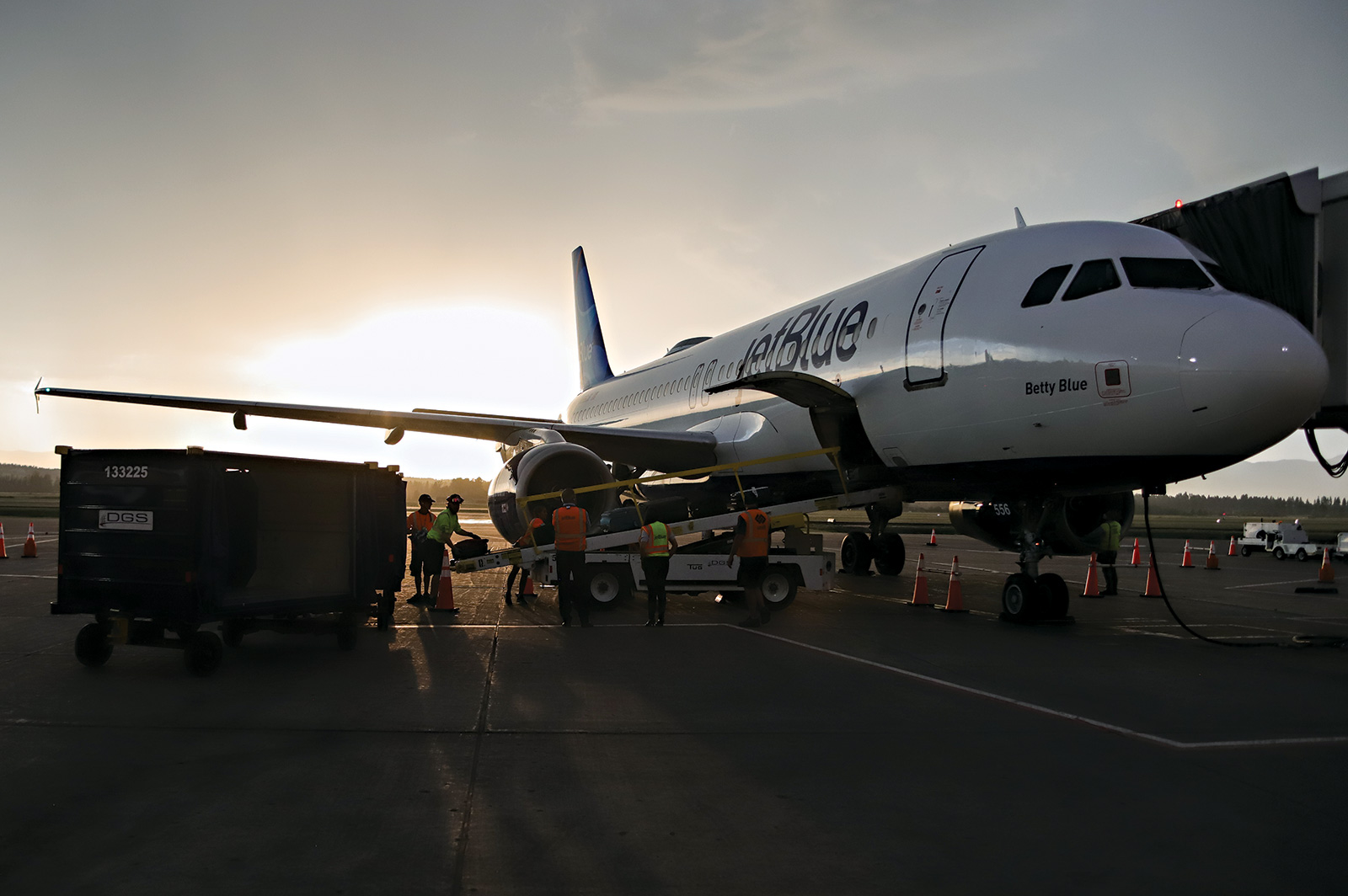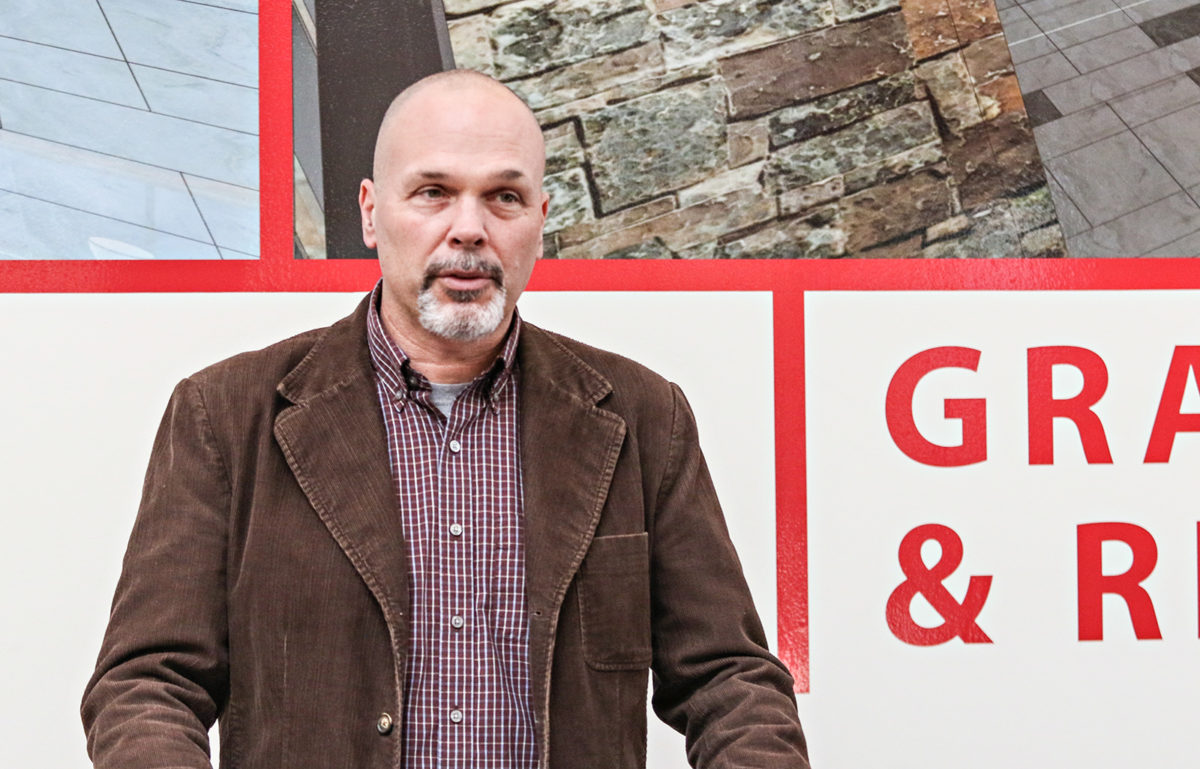Glacier Park International Airport Receives $14.5 Million
The funding comes from the bipartisan infrastructure bill U.S. Sen. Jon Tester helped negotiate last year
By Micah Drew
Montana U.S. Sen. Jon Tester visited Kalispell on Feb. 23 to highlight federal funding for the Glacier Park International Airport (GPIA) that stems from the bipartisan infrastructure bill he helped negotiate last summer.
The $1.2 trillion bill was the first major legislative effort to succeed under the Biden administration and was opposed by Montana Republican Congressman Matt Rosendale and Sen. Steve Daines. The bill passed through Congress with bipartisan support, including a 69-30 vote in the Senate and was signed by President Joe Biden on Nov. 15.
“We are now starting to see the impacts of that bill. Montana airports in total are going to see about $144 million from this bipartisan infrastructure bill,” Tester said from inside the GPIA terminal. “Today I’m proud to share that Glacier Park International Airport received $14.5 million over the next five years.”
Tester added that the funds are already getting out the door with GPIA receiving the first allocation in December of just over $2.8 million.
The funding comes through the Federal Aviation Administration’s (FAA) Airport Improvement plan, which aims to help airports construct or repair runways and taxiways as well as make improvements to terminals and gates.

In 2021, GPIA broke ground on a terminal expansion, a $100 -million project that will nearly triple the airport’s footprint, from 75,000 square feet to 200,000. The expansion comes at a time when GPIA is experiencing a record breaking number of travelers.
Last year GPIA broke its passenger record by 17% with 826,096 total enplanements and deplanements, which made it the second busiest airport in Montana, trailing only Bozeman. According to airport director Rob Ratkowski, 2021 was just the latest in a string of double-digit growth years, which prompted the planning of the terminal expansion five years ago.
“This is the largest project in the history of the airport by far, and it’s meant to match the growth we’re seeing at GPIA,” Ratkowski said. “GPIA allows people from all over the world to visit our world class destinations, access our local economy and it allows the people of the Flathead to recreate and do business all across the world as well.”
Driving the increased passenger numbers through GPIA was the addition of three new airline partners last summer. GPIA added 100,000 more airline seats and seasonal flights with Sun Country Airlines, JetBlue and Frontier Airlines as well as additional flights on existing airlines. All three new airlines were added in a 90-day period, which Ratkowski described as “remarkable.”
Ratkowski has called GPIA “uniquely seasonal,” with service highest in the summer when tourists deplane to explore Glacier National Park and the Flathead Valley, but winter offerings are also crucial to the local economy.
According to Whitefish Mountain Resort spokesman Chad Sokol, 45% of non-resident visitors to the resort come via commercial plane, up from 20% just six years ago.

GPIA last expanded in 1999, and Ratkowski said the expansion is more important and timelier than ever, as the airport continues to exceed passenger projections.
“Air service has just exploded, and COVID helped drive that,” he told Tester.
Ratkowski said there are some discussions to use some of the new federal funding to think about planning an even bigger expansion. Currently the renovations will include improvements to TSA screening areas and baggage claim, at least two additional terminal gates, dining and beverage options and the county’s first escalators.
“This will be an iconic structure that will represent our community to the hundreds of thousands of people who travel through here each year,” Ratkowski said. “And importantly, federal funding is a critical piece of this project. Through the FAA and TSA, the federal government is a heavily invested partner.”
In addition to a total of $114 million for Montana airports, Tester’s office has pointed to a number of Montana-specific funding priorities in the infrastructure bill, including:
- • $2.82 billion for Montana highways
- •$225 million for bridge repair and replacement in the state
- •$15 million to study Amtrak passenger rail travel
- •$40 million for water, sewage and sanitation projects for the Blackfeet Tribe
- •$42.5 billion grant program for nationwide high-speed internet deployment
- •$3.37 billion for national wildfire mitigation efforts
The bill also allocates $1.73 billion specifically to the National Park Service to repair roads and bridges in parks like Glacier National Park and Yellowstone.